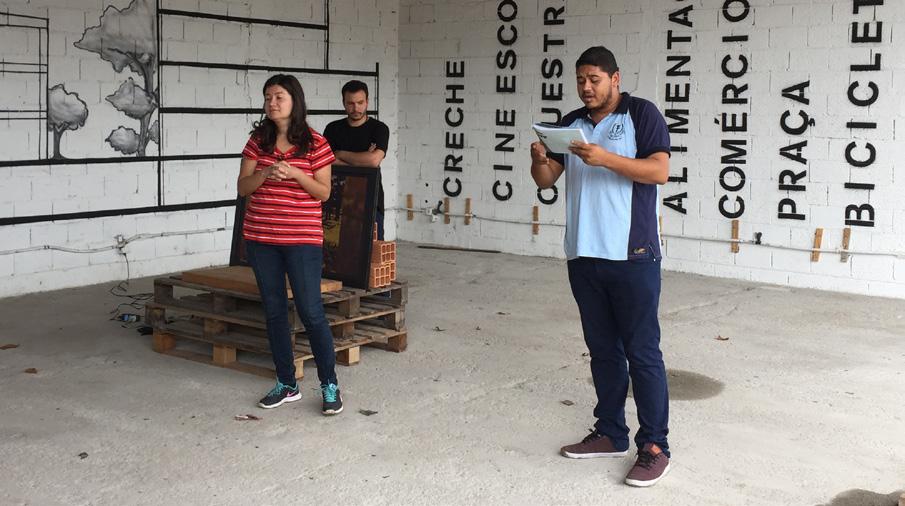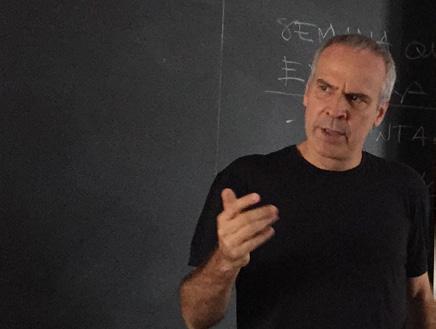
2 minute read
Community
85 Thiago Vinicius.
COMMUNITY
Regarding community organizing in São Paulo’s informal settlements, the Taubman College Team met with community leaders from informal settlements. Thiago Vinicious, a community organizer, talked to the Taubman Team about current trends in grassroots organizing in the city’s periphery. Milton Braga, an architect talked about integrating informal settlement residents into the design process.
Vinicius lives in a neighboring favela south of Paraisópolis, called Campo Limpo. He is driven by activism to make a difference in his community, working to change the negative connotations that are often associated with favelas and to celebrate their culture and identity, which is commonly marginalized.
The speaker shared some of his strategies in community organizing. He believes that in any community the youth should not be forgotten, but communities should also embrace the elderly. He recognizes that the elderly put their homes together, take care of their grandchildren, and can be very influential. Communities need to provide more services to the elderly and appreciate their presence more. He also makes the point that in community organizing they are key allies in dialoguing with the government. The elderly are much more available and willing to speak their mind to tell the government what is wrong and what they need. Additionally, the government seems to react less harshly toward the elderly compared to younger generations (Vinicius, 2017).
Once people come to informal settlements they struggle to find education for their children. Vinicius mentions how proud he is of his mother, who was very engaged in community organizing. Through her efforts of engagement in the community, she was able to build a school and provide education. He believes that you do not need actual buildings – it is the people occupying the buildings bring about the education. This education is not formalized, but rather serves as a form of liberation from the political economic system that represses many Brazilians. Paulo Freire wrote the book, Pedagogy of the Oppressed, and was an educator who worked a lot with low-income communities. He is an inspirational figure in Vinicius’s life and sees Freire as a model of education for liberation from oppression (Vinicius, 2017).
Liberation theology is related to life in the favela, the stigma of residing in one, and social movements. Social movement groups in favelas offer support for residents that is not guaranteed from the government (Vinicius, 2017). Liberation theology began as a religious movement in the late 20th-century – centered in Latin America. Then, it aimed to apply religious faith through aiding those who are poor and oppressed in society through participation in political and civic affairs (BBC, 2011).
A large aspect of the favela culture is baile funk. It is a controversial dance and music scene that occurs in favelas across the country. The movement is a contemporary protest against militant policing of black people. Peaceful protests in the name of baile funk have occurred, including silent sit-ins at city malls (Vinicius, 2017). Favelas incorporate unique ways to include the environment as well such as utilizing recyclables for art within the community (Milton Braga, 2017).

86 Milton Braga.






